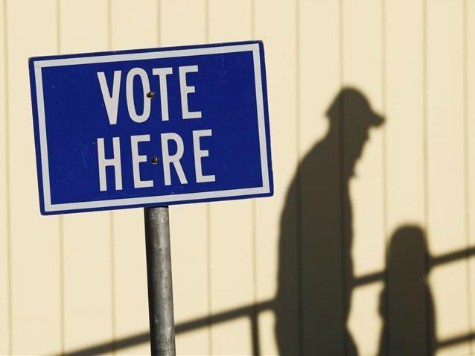(AP) JACKSON, Mississippi — Attorney General Jim Hood says the Department of Justice has asked for more information on Mississippi’s voter identification law.
Hood said in a statement Tuesday that the bottom line is that the law will not be pre-cleared by the Justice Department in time for it to be enforced for the Nov. 6 election.
Mississippi’s law provides for a wide range of photo identifications that could be used at the polling places.
Supporters of voter ID say it’s needed to help ensure the integrity of elections by preventing people from voting under others’ names. Opponents say there’s been little proof of people masquerading as others to cast ballots. They also contend the ID requirement could suppress voter turnout among poor, elderly and minority voters.
“All the DOJ is saying in this response is that they need more details of the state’s plan in order to make a determination,” said Hood. “What this means is that the voter ID requirement will not be in place before the November election. You will not be required to show ID at the poll until DOJ interposes no objections or pre-clears Mississippi’s voter ID bill. “
Hood said some of the requested information is already compiled and can be easily provided. Once the state provides the requested information, Hood said the DOJ will have 60 days to respond.
In its letter to the state, the Justice Department asked Hood’s office whether the state has determined that voter ID “will not have a retrogressive effect on minority citizens in the effective exercise of their electoral franchise”. The DOJ also asks to review a detailed description of any measures the state intends to put in place to “ameliorate this prohibited effect, which Hood said would include the rules and regulations being created by Secretary of State Delbert Hosemann.
Hosemann has said his office has made provisions to offer free photo identifications at circuit clerk offices in each county courthouse, including looking up and verifying birth certificates on the spot. He also said he’s negotiating to provide free rides to courthouses for people without transportation. Mississippi also plans to accept some college student identifications.
Hosemann said those provisions should help Mississippi prevail in court even when other states have lost voter ID cases.
On Tuesday, a judge blocked Pennsylvania’s voter identification requirement from going into effect on Election Day. The law had been opposed by Democrats who said it was a ploy to defeat President Barack Obama and other opponents who said it would prevent the elderly and minorities from voting.
The decision by Commonwealth Court Judge Robert Simpson on the law requiring each voter to show a valid photo ID could be appealed to the state Supreme Court. Simpson ordered the state not to enforce the photo ID requirement in this year’s presidential election but will allow it to go into full effect next year.
A wave of new voter identification requirements have been approved in the past couple years, primarily by Republican-controlled Legislatures.
The U.S. Supreme Court upheld Indiana’s voter ID law in 2008, and Georgia’s top court upheld that state’s voter ID law. But a federal court panel struck down Texas’ voter ID law, and the state court in Wisconsin has blocked its voter ID laws for now. The Justice Department cleared New Hampshire’s voter ID law earlier this year, and a federal court is reviewing South Carolina’s law.

COMMENTS
Please let us know if you're having issues with commenting.